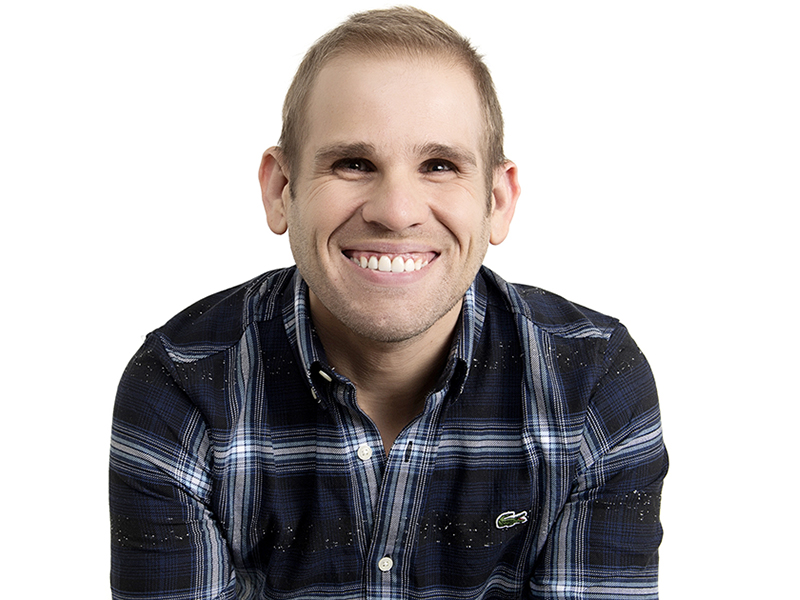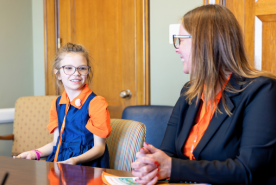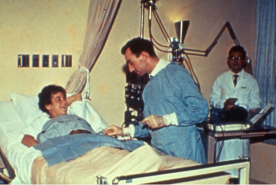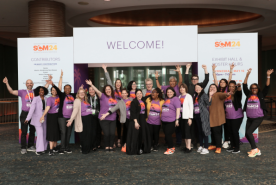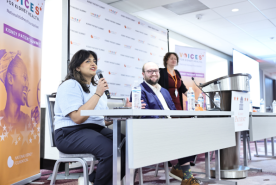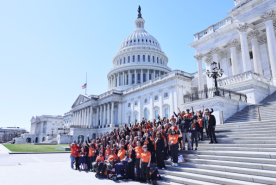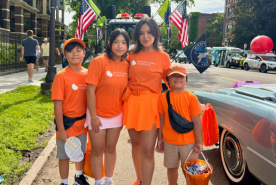Treatments and therapies Diseases and conditions Health systems, social systems, and environmental factors Dialysis Kidney diseases and conditions Healthcare system navigation and patient advocacy Childhood nephrotic syndrome Transition to adult care
November 16, 2017
By David Wilson, CKD patient and NKF advocate
I was diagnosed with kidney disease when I was 22 months old. This came as a shock to my parents – we had no family history of kidney disease that we were aware of and knew very little about it.
I was put on medication along with chemotherapy to delay progression of the disease.
This made for a tough childhood. I struggled with high blood pressure and since my kidneys didn’t work right, my body retained fluid. Between years of taking steroids and the fluid retention, I was very overweight as a child. I had a hard time making friends and I was teased constantly. All I wanted was to be a kid and to fit in. My parents tried to put me in sports but I couldn’t keep up with the kids and I was sick.
I was in and out of the hospital all the time. I missed most of my fifth grade because I was in the hospital. To this day, I still don’t understand fractions. This is not unusual for kids with kidney disease.
In sixth grade, things got really bad – my disease caused me to retain so much fluid that my lung collapsed. I literally couldn’t breathe. Next thing I knew - I woke up in the hospital and I was on dialysis. I was in the University of Minnesota pediatric dialysis unit. I was only 11 years old.
When I finally went back to school after being in the hospital, the kids and teachers didn’t recognize me. I had lost 90 pounds of water weight. I went from weighing 150 pounds to just 60 pounds in only a couple of weeks.
I was an 11-year-old on dialysis and I didn’t understand what was happening. I hated sitting on dialysis for so many hours. I didn’t like the food restrictions and all I really cared about was being a normal kid who could play sports and eat junk food with my friends. But as a kidney patient, I couldn’t do any of those things and for me it was hell.
I had my first kidney transplant when I was 13. My dad was my donor. I remember there being so much hope around getting that transplant. It was going to fix everything. I was told that it was a 100% match and was going to work. Unfortunately, within a few months my kidney disease returned to the transplanted kidney. It only lasted five months before they removed it all together. I was back on dialysis again. I remember thinking…”WHY ME, I thought this was supposed to help!” I also remember how difficult it was for my parents – especially my father who was so optimistic about the transplant working.
Three years later when I was 17, I had my second transplant and I knew immediately when I woke up from the surgery that it hadn’t worked. I felt terrible and I could tell that something was seriously wrong. My body temperature was 105 degrees. They had me on a bed of ice. I was in agony. The doctors did an ultrasound and within a half hour I was back in surgery having the transplanted kidney removed. This transplant didn’t even last 24 hours.
So, I was back on dialysis once again. Only now, I was transitioning from the pediatric dialysis unit to an adult dialysis unit. I can tell you from firsthand experience, there is not an easy process in place for this transition. Suddenly everything had a formal, adult tone to it - it was all about medication and diet and rules and HIPPA laws. I may have been 18, but I was still very much a kid. And this was a lot for a kid to handle. It was a difficult transition.
There I was, doing dialysis three days a week and wondering what would be next for me. I knew I had to go to college but I wondered what my future would be... That was ten years ago. Today I’m 28 years old and still on dialysis. I recently graduated from college with a bachelors in digital design
Dialysis can be isolating at times, especially at my age but it does not affect my positive outlook on life and I am always hopeful for something better. I'm hopeful that in time, research will provide me, and many others, with better options.
